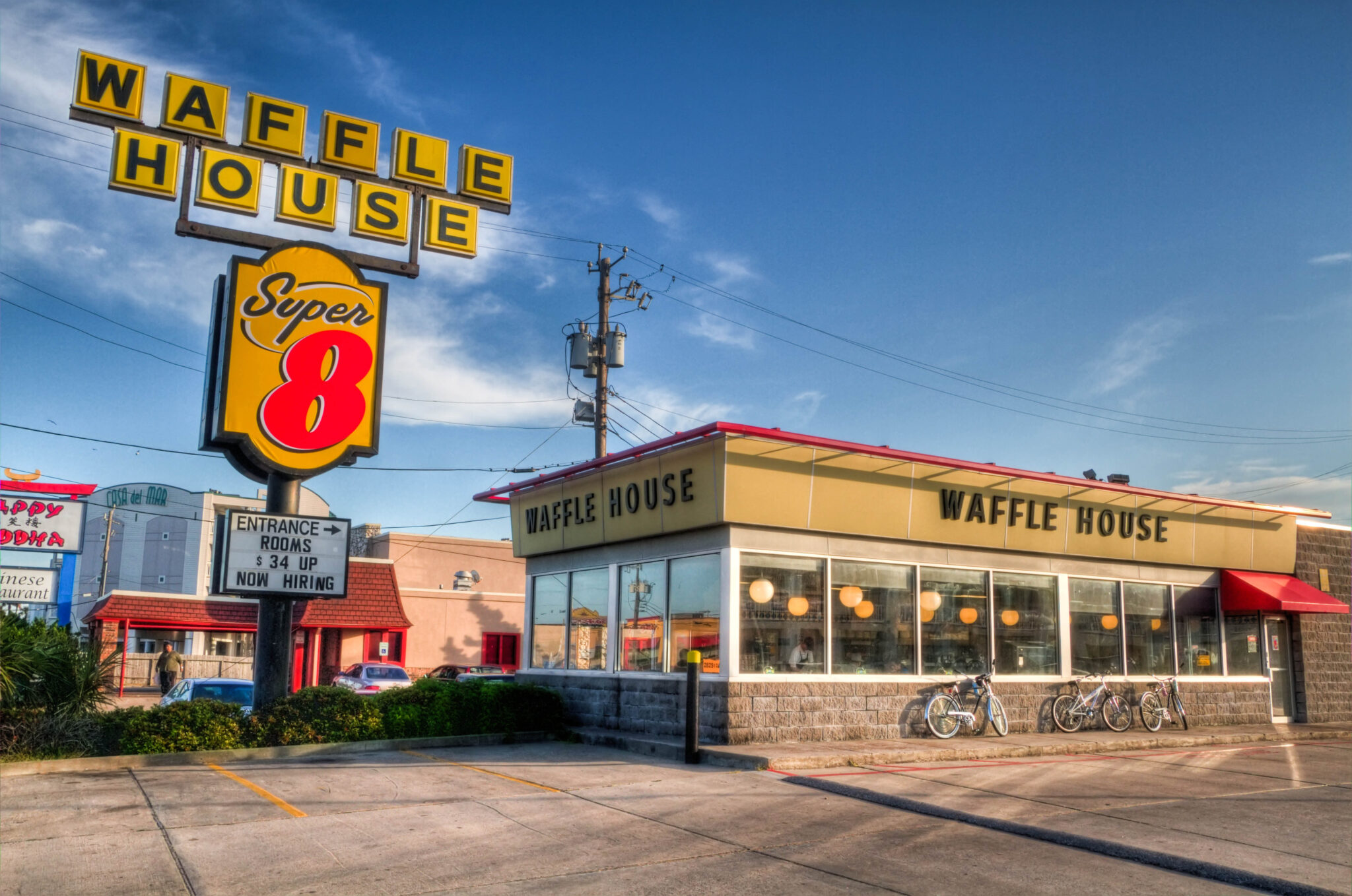In today’s news and commentary, workers at Waffle House are pushing for a $25 hourly minimum wage, Canadian auto workers ratify a contract with General Motors, and private-sector doctors in Minnesota and Wisconsin vote to unionize.
Waffle House workers at several southern locations are engaging in activity to push for better wages and working conditions. Many have walked off the job and a petition calling for a $25 hourly minimum wage is circulating. The Union of Southern Service Workers, an SEIU-supported worker organization, is behind the petition, which is also calling for safer working conditions and an end to a mandatory meal deduction policy. Waffle House is famous for remaining open 24/7 even through extreme weather events. In addition to attracting drunk and rowdy clientele in the third shift, the restaurant chain’s business hours pose many threats to worker safety. The petition calls on Waffle House to include worker voices in developing safety plans for each store. Waffle House’s tipped workers make sub-minimum wages, but say that the culture of Waffle House does not invite generous tipping. Waffle House has yet to respond to the workers’ demands.
On Sunday, the Canadian labor union, Unifor, announced that its members had voted in favor of a proposed contract with General Motors. Last week, the union went on strike at three GM facilities in Oshawa, St. Catharines and Woodstock, Canada. Twelve hours later, Unifor reached a tentative agreement with the company that includes a base hourly wage increase of almost 20% for production and 25% of skilled trades over the three-year agreement, as well as reinstatement of cost-of-living allowances. The tentative agreement was approved by 80.5% of union members at impacted facilities. The contract comes just one month after Unifor secured a similar deal with Ford’s Canadian operations. The union plans to negotiate with Stellantis next, following a “pattern bargaining” strategy, in contrast to the U.S.’s United Auto Workers current simultaneous bargaining approach.
Physicians, nurse practitioners and physician assistants at over 50 Allina Health System clinics across Minnesota and Wisconsin have voted to unionize. The union appears to be the largest group of unionized doctors in the private sector. The healthcare providers cited understaffing, burnout, and a lack of independence in providing patient care as reasons for the organizing efforts. Other Allina Health System facilities have voted to unionize this year, though the health care organization is appealing the outcome of this vote. Across the healthcare industry, practitioners are expressing concerns with employers exploitation of the “sense of mission” inherent in these careers. Pharmacists around the country have begun organizing around similar concerns, and residents and fellows at several hospitals have successfully unionized this year.







Daily News & Commentary
Start your day with our roundup of the latest labor developments. See all
February 16
BLS releases jobs data; ILO hosts conference on child labor.
February 15
The Office of Personnel Management directs federal agencies to terminate their collective bargaining agreements, and Indian farmworkers engage in a one-day strike to protest a trade deal with the United States.
February 13
Sex workers in Nevada fight to become the nation’s first to unionize; industry groups push NLRB to establish a more business-friendly test for independent contractor status; and UFCW launches an anti-AI price setting in grocery store campaign.
February 12
Teamsters sue UPS over buyout program; flight attendants and pilots call for leadership change at American Airlines; and Argentina considers major labor reforms despite forceful opposition.
February 11
Hollywood begins negotiations for a new labor agreement with writers and actors; the EEOC launches an investigation into Nike’s DEI programs and potential discrimination against white workers; and Mayor Mamdani circulates a memo regarding the city’s Economic Development Corporation.
February 10
San Francisco teachers walk out; NLRB reverses course on SpaceX; NYC nurses secure tentative agreements.